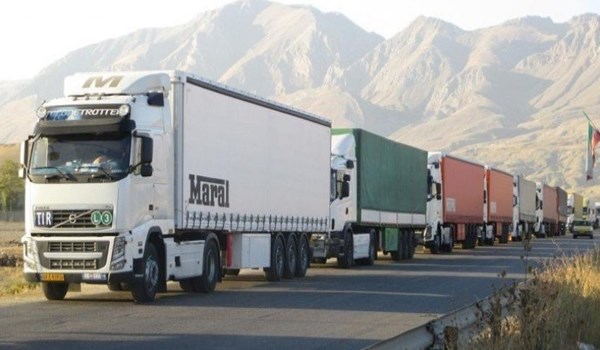In 2024, the Kurdistan Regional Government (KRG) allocated $8 billion for importing goods while issuing over 180 export licenses, showcasing its active trade and economic diversification efforts. Locally produced fruits and vegetables also made significant contributions, with 1.4 million tons exported to central and southern Iraq. The KRG aims to expand its agricultural exports and modernize trade processes, marking crucial steps toward economic sustainability in the Region.
KRG’s $8 Billion Import Strategy
The Ministry of Trade and Industry of the Kurdistan Regional Government (KRG) allocated $8 billion in 2024 for the importation of goods from Türkiye, Iran, China, the United States, and Gulf countries. These imports focused on sectors such as the chemical industry, food products, animal goods, and other licensed trade categories, as confirmed by Nawzad Sheikh Kamil, the Ministry’s Director General of Trade.
Sheikh Kamil also highlighted that the KRG issued over 180 export licenses to traders this year, reflecting the Region’s growing trade activities.
Looking ahead to 2025, the KRG plans to establish offices of the General Directorate of Trade at key international border crossings, including Ibrahim Khalil, Haji Omeran, Parwezkhan, and Bashmakh. These offices aim to streamline trade operations and facilitate license issuance directly at the borders.
Additionally, the Ministry is focusing on digitizing food receipts. “A committee from Baghdad will visit the Kurdistan Region to examine Erbil as a case study for implementing the digitization process,” Sheikh Kamil stated.
Agricultural Exports Reach New Highs
The agricultural sector in the Kurdistan Region flourished in 2024, with over 1.4 million tons of locally produced fruits and vegetables exported to central and southern Iraq. According to official data released by Rudaw, 41,000 trucks carried around 750,000 tons of produce from Erbil, while Sulaimaniya contributed 375,000 tons in the first ten months of the year. Meanwhile, Duhok exported 253,905 tons of agricultural products during the same period.
Main exports included watermelon, melon, potatoes, onions, tomatoes, cucumbers, celery, eggplant, and peppers. These shipments followed the fulfillment of local demand, ensuring that the Region’s residents were adequately supplied before exports commenced.
Summer is considered the peak season for agricultural production in the Kurdistan Region, with the highest export volumes recorded during this time. This seasonal advantage underscores the Region’s potential to expand its agricultural trade both domestically and internationally.
Economic Diversification Through Agriculture and Trade
The KRG has placed significant emphasis on diversifying its economy to reduce reliance on imports and bolster local production. Despite neighboring Iran and Türkiye being major suppliers of agricultural goods to the Region, the KRG has taken steps to develop its agricultural sector as a sustainable economic pillar.
A notable milestone in this effort occurred in December 2022, when the Region made its first-ever export of pomegranates to Gulf countries. This marked the Kurdistan Region’s first significant non-oil export, setting a precedent for broadening its economic base.
The current KRG cabinet is determined to capitalize on the Region’s fertile lands and agricultural capabilities. By supporting local farmers and facilitating trade, the government envisions a future where agricultural exports play a central role in its economic strategy.
From allocating $8 billion for imports to exporting record-breaking amounts of agricultural produce, the Kurdistan Region demonstrated its commitment to economic growth in 2024. With plans to modernize trade operations and expand agricultural exports, the KRG is steadily moving toward a diversified and sustainable economy.


